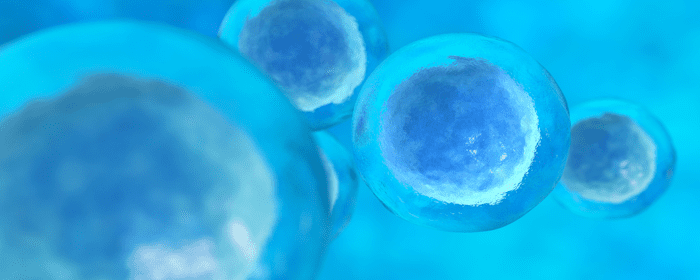The National Institute of Health estimates that nearly 250,000 people in the United States are currently living with a spinal cord injury (SCI). Most often a result of an accident, SCIs typically result in the loss of neurons and axonal damage resulting in the loss of function.
SCIs can be divided into two distinct phases, the initial physical injury and the secondary injury which typically occurs hours to days later. In most cases of SCI, damage to the axonal and tissue damage is caused by compression and/or contusion to the spinal cord. The secondary SCI injury occurs in the hours and days after the initial injury and is characterized by persistent inflammation, glial scar formation, demyelination of surrounding neurons, and death of cells. Over time, research has demonstrated that, in all aspects of secondary injury, the inflammatory response is the major cause and leads to widespread cell damage and lesion expansion.
Recent research has demonstrated that stem cells, including mesenchymal stem cells, neural stem/progenitor, and embryonic stem cells, possess anti-inflammatory properties and promote functional recovery after SCI by inducing macrophages M1/M2 phenotype transformation.
In this review, Cheng and He discuss the general features of macrophages in response to SCI, the phenotype, and function of macrophages in SCI, and the effects of stem cells on macrophage polarization and its role in stem cell-based therapies for SCI.
Macrophages accumulate in and around an SCI and play a very important role in neuroinflammation. Considering that recent research demonstrates the different, but important, contributions M1 and M2 macrophages make toward repairing tissue damage, this process is thought to be a promising therapeutic treatment for controlling the inflammation occurring after initial SCI.
According to this review, there are both positive and negative effects of macrophages on tissue repair and regeneration after an SCI. Interestingly, some studies show that infiltrating macrophages has harmful effects, especially in the early stages of an SCI. On the other hand, studies also indicated that macrophages have beneficial effects on tissue repair. These results included findings indicating that activated macrophages could provide a beneficial microenvironment that is good for the regeneration of sensory axons.
While the exact reason for the opposite effects of macrophages on the pathological process of SCI is not yet known, it’s thought to be because of the different phenotypes of macrophages – M1 (classical activation) and M2 (alternative activation).
Additionally, studies have demonstrated that M2 macrophages are important for efficient remyelination after CNS injury, while M1 macrophages hinder neurogenesis and inhibit neurite outgrowth and induce growth cone collapse of cortical neurons.
Considering these findings, the authors point out that polarization of macrophages to M2 is beneficial – and often preferred to M1- to facilitate the recovery after SCI. These findings have also demonstrated stem cell therapy to hold tremendous potential for therapeutic uses in the treatment/recovery after a spinal cord injury.
There is accumulating evidence indicating that the current preference of M2 macrophages compared to M1 macrophages correlates with remission of SCI in cases receiving SCI interventions including anti-inflammatory therapies and stem cells. The authors of this review conclude that while the exact process by which stem cells regulate macrophage polarization has yet to be determined, stem cells can alter macrophage polarization and promote functional recovery postinjury.
Source: “Anti-inflammatory effect of stem cells against spinal cord injury via | JN.” 13 Feb. 2017, https://www.dovepress.com/anti-inflammatory-effect-of-stem-cells-against-spinal-cord-injury-via–peer-reviewed-fulltext-article-JN.


 St. Petersburg, Florida
St. Petersburg, Florida
